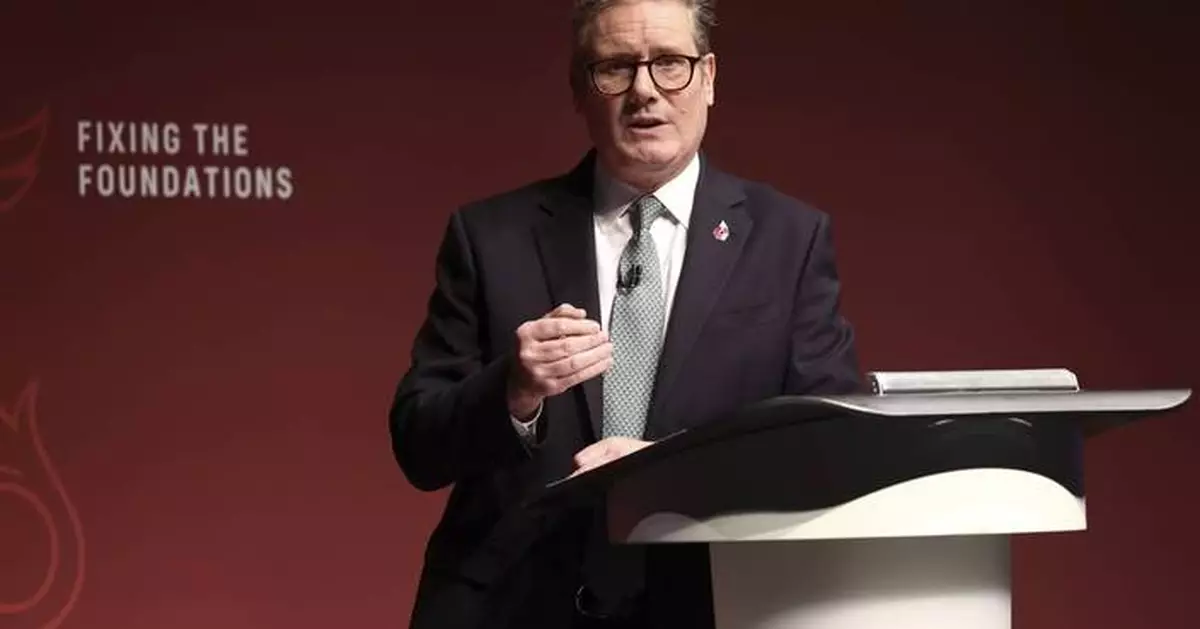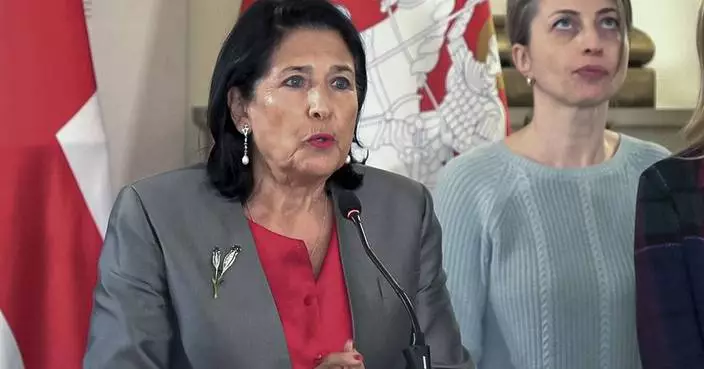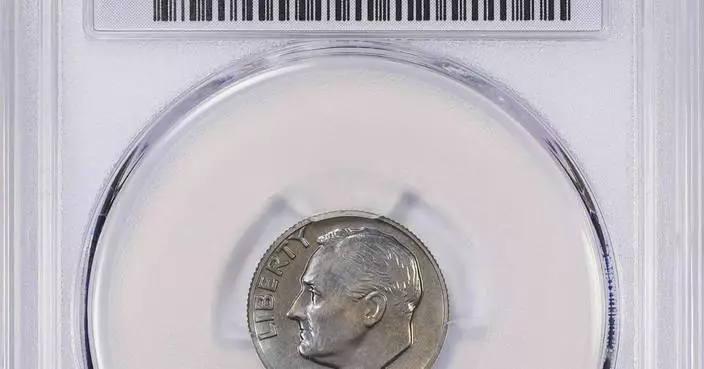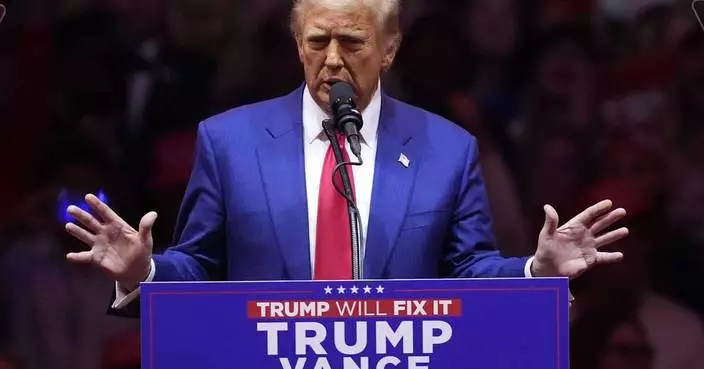LONDON (AP) — Fixing Britain's troubled economy will be a long haul in a “harsh” fiscal environment, Prime Minister Keir Starmer said Monday, setting the stage for his government's high-stakes first budget this week.
Starmer hopes voters will accept his argument that higher taxes and limited public spending increases are needed to “fix the foundations” of an economy that he says has been undermined by 14 years of Conservative government. But his message — things will slowly get better — is a risky one in a high-speed political world.
Click to Gallery
Britain's Prime Minister Prime Keir Starmer gestures while speaking at an event in the West Midlands, England, Monday, Oct. 28, 2024. (AP Photo/Darren Staples)
Britain's Prime Minister Prime Keir Starmer speaking at an event in the West Midlands, England, Monday, Oct. 28, 2024. (AP Photo/Darren Staples)
Britain's Prime Minister Prime Keir Starmer speaking at an event in the West Midlands, England, Monday, Oct. 28, 2024. (AP Photo/Darren Staples)
Britain's Prime Minister Prime Keir Starmer speaking at an event in the West Midlands, England, Monday, Oct. 28, 2024. (AP Photo/Darren Staples)
Britain's Prime Minister Prime Keir Starmer speaking at an event in the West Midlands, England, Monday, Oct. 28, 2024. (AP Photo/Darren Staples)
“It’s time to embrace the harsh light of fiscal reality,” Starmer said, telling voters that politicians must “stop insulting your intelligence with the chicanery of easy answers.”
“I will never stand here and tell you to feel better, if you don’t,” he added during a speech in the central England city of Birmingham two days before Wednesday's budget. “Change must be felt.”
Starmer's center-left Labour Party was elected July 4 after promising to banish years of turmoil and scandal under Conservative governments, get Britain’s economy growing and restore frayed public services, especially the state-funded National Health Service.
Pumping money into health, education and other services is made harder by a sluggish economy, hobbled by rising public debt and low growth of just 0.2% in August. Starmer also says that on taking office he discovered a 22 billion pound ($29 billion) “black hole” in the public finances left by the Conservative government.
The Conservatives say they left an economy that was growing, albeit modestly, with lower levels of debt and a smaller deficit than many other Group of Seven wealthy nations.
Paul Johnson, head of independent think-tank the Institute for Fiscal Studies, said the budget hole is real, but that both Labour and the Conservatives were dishonest about the economy during the election.
“It was obvious that they were either going to have to cut spending, which is what the previous government said they were planning to do, or increase taxes,” he told Sky News. “But of course, no party was willing to say that. That’s why we called it a conspiracy of silence at the time.”
That means the budget is certain to include tax increases – though Labour has pledged not to raise the tax burden on “working people,” a term whose definition has been hotly debated in the media for weeks.
Treasury chief Rachel Reeves – Britain’s first female chancellor of the exchequer -- is widely expected to tweak the government’s debt rules so that she can borrow billions more for investment in the health system, schools, railways and other big infrastructure projects, and to raise money by hiking tax paid by employers, though not employees. She could also raise taxes on capital gains, arguing they do not form part of the main income of working people.
Starmer said that “tax rises will prevent austerity and rebuild public services,” while “borrowing will drive long-term growth.”
“There are no shortcuts,” he said.
Starmer’s government set out its tough-medicine approach to the economy soon after being elected. One of its first acts was to strip millions of retirees of a payment intended to help heat their homes in winter. It was intended to signal determination to take difficult decisions, but spawned a sharp backlash from Labour members and sections of the public.
It also sat awkwardly with news that Starmer had accepted thousands of pounds’ (dollars’) worth of gifts including clothes, designer eyeglasses and tickets to see Taylor Swift. After days of negative headlines, he agreed to pay back 6,000 pounds (almost $8,000) worth of freebies.
Headlines about internal Labour feuds and “Swiftgate” flourished during the long wait for the budget, which is being delivered almost four months after the election, an unusually big gap.
Labour “has been finding the adjustment into government a bit hard,” said Jill Rutter, a senior fellow at the Institute for Government think-tank. “There has been a sense that everybody is just in a holding pattern until we get the budget.”
Starmer is a famously cautious politician, and Reeves, a former Bank of England economist, wants to be seen as a prudent guardian of the nation’s purse strings. Rutter said that part of the reason for the slow buildup to the budget is the memory of the economic turmoil unleashed by then-Prime Minister Liz Truss in October 2022. Truss resigned as prime minister after just 49 days in office when her plan for billions in tax cuts rocked the financial markets and battered the value of the pound.
“Every chancellor is now scarred by the ghost of Liz Truss past,” Rutter said, noting that Reeves “clearly didn’t want to do a Liz Truss and do a rushed job.
“The question is, does she do a good enough job on Wednesday that people think that she’s used that time well?” Rutter added. “The stakes are quite high for the government.”
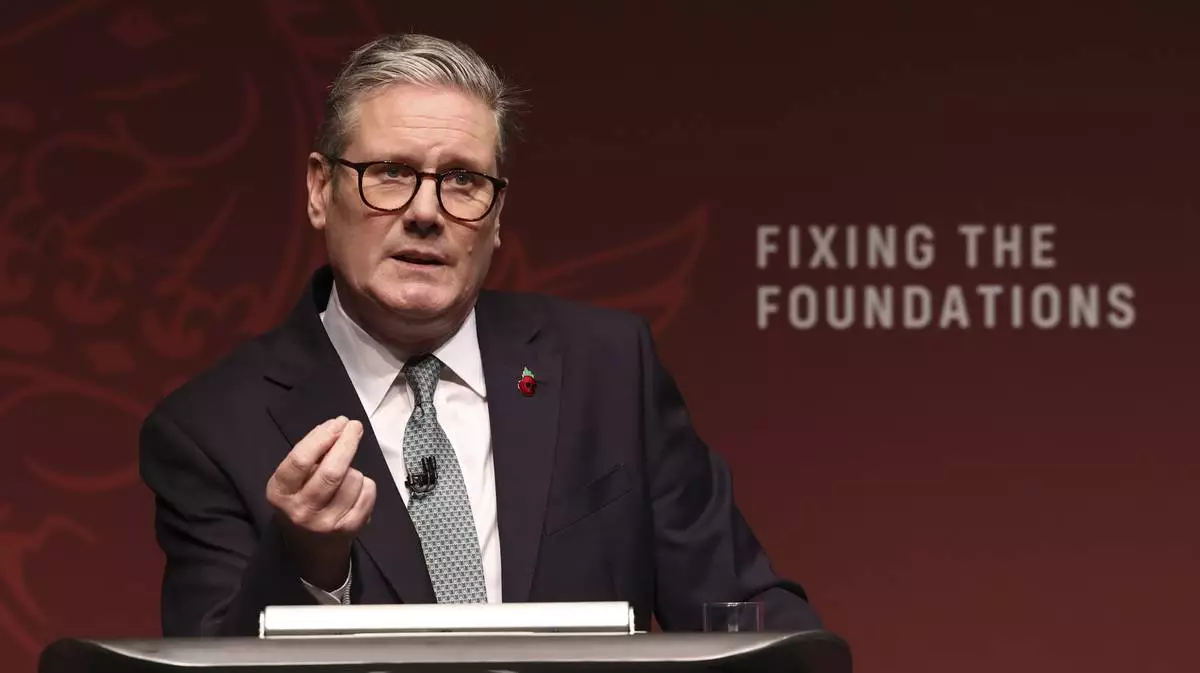
Britain's Prime Minister Prime Keir Starmer gestures while speaking at an event in the West Midlands, England, Monday, Oct. 28, 2024. (AP Photo/Darren Staples)
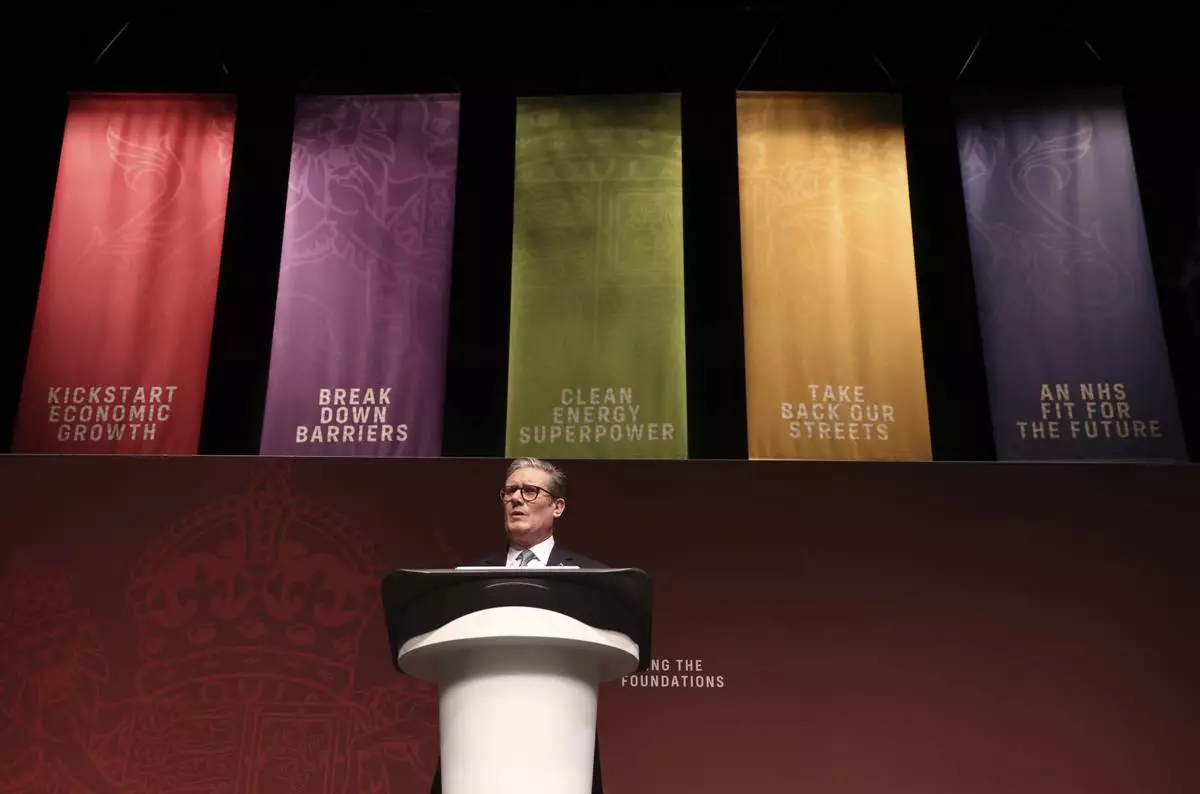
Britain's Prime Minister Prime Keir Starmer speaking at an event in the West Midlands, England, Monday, Oct. 28, 2024. (AP Photo/Darren Staples)

Britain's Prime Minister Prime Keir Starmer speaking at an event in the West Midlands, England, Monday, Oct. 28, 2024. (AP Photo/Darren Staples)
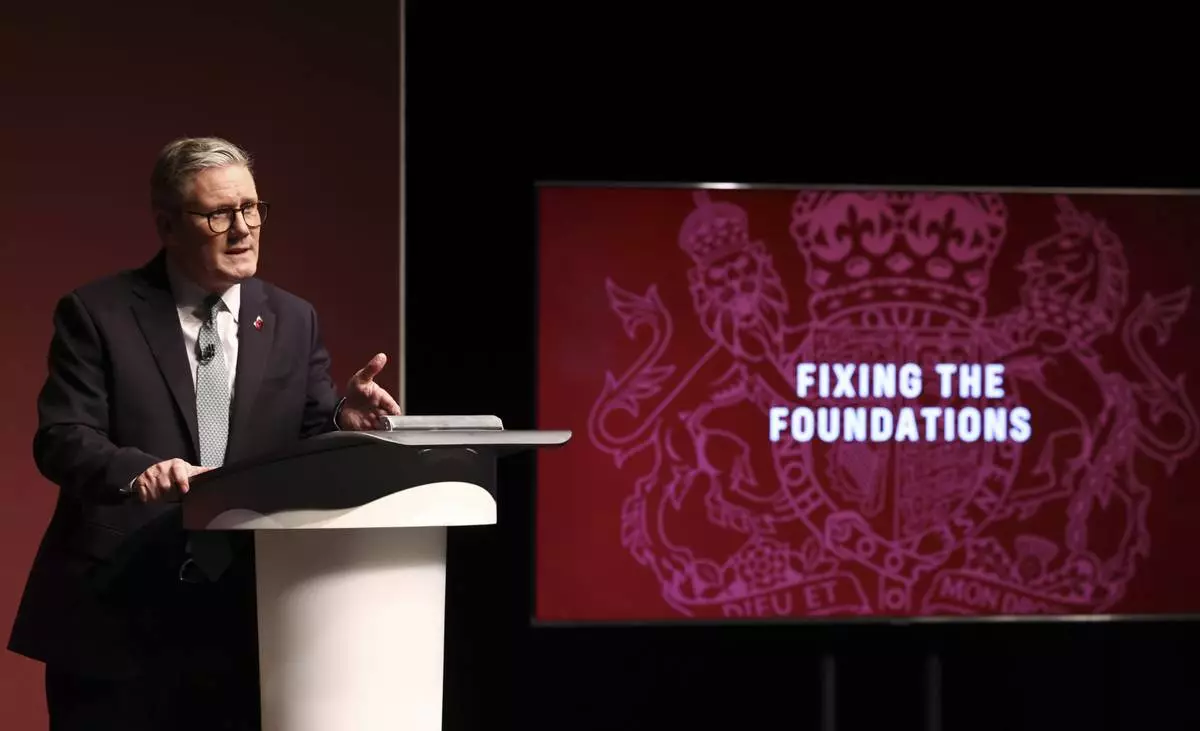
Britain's Prime Minister Prime Keir Starmer speaking at an event in the West Midlands, England, Monday, Oct. 28, 2024. (AP Photo/Darren Staples)
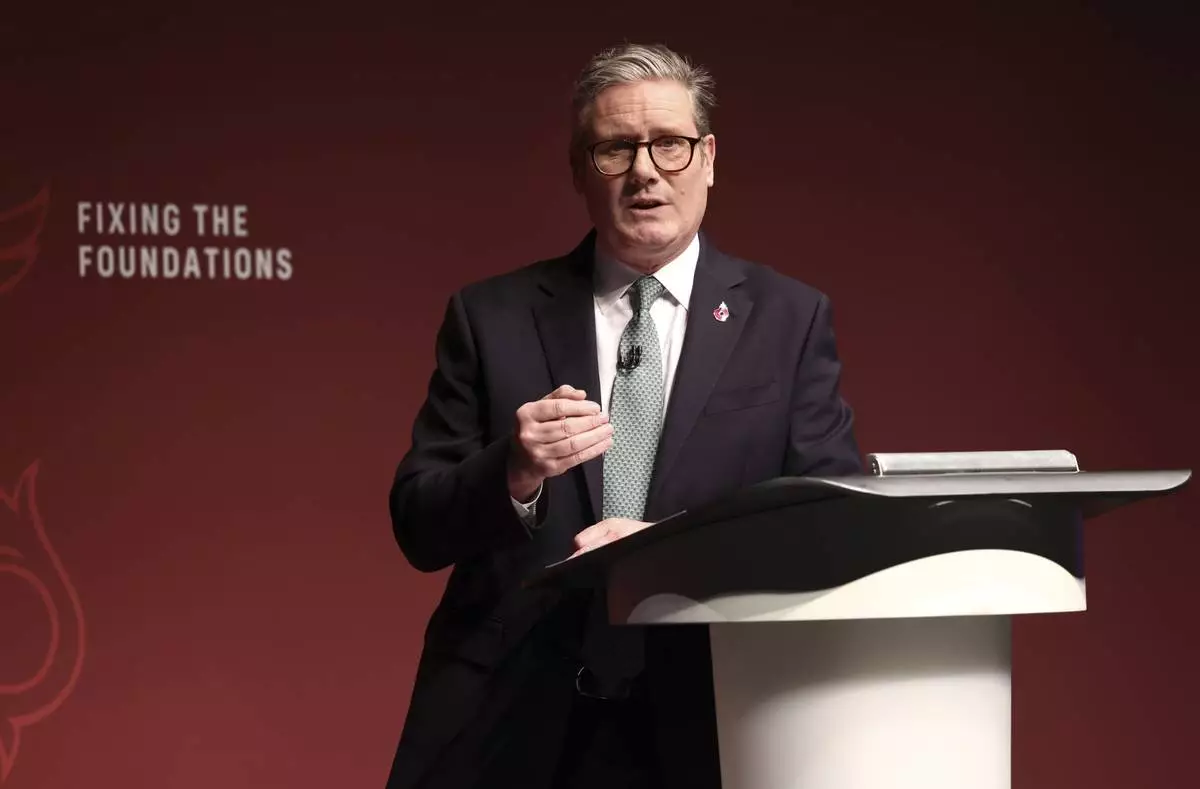
Britain's Prime Minister Prime Keir Starmer speaking at an event in the West Midlands, England, Monday, Oct. 28, 2024. (AP Photo/Darren Staples)
NEW YORK (AP) — U.S. stocks are approaching records Monday ahead of a big week for profit reports from Big Tech stocks. Oil prices, meanwhile, are tumbling toward their worst loss in more than a year.
The S&P 500 was 0.4% higher in midday trading. The main measure of the U.S. stock market is coming off its first losing week in the last seven, but it’s still near its all-time high set earlier this month.
The Dow Jones Industrial Average was up 299 points, or 0.7%, as of 11 a.m. Eastern time, while the Nasdaq composite was 0.7% higher and flirting with its own record set in July.
Several Big Tech stocks helped lead the way, and five of the behemoths known as the “Magnificent Seven” are on this week’s schedule to report their latest profits. These high-flying stocks have been at the forefront of Wall Street for years and have grown so big that their movements can singlehandedly shift the S&P 500.
After suffering a summertime swoon on worries that their stock prices had risen too quickly when compared with their profits, Alphabet, Meta Platforms, Microsoft, Apple and Amazon are under pressure to deliver more big growth.
Another member of the Magnificent Seven, Tesla, soared to one of the best days in its history last week after reporting a better profit than analysts expected.
Monday’s gains for Big Tech helped offset drops for stocks in the oil-and-gas industry, which were hurt by the sinking price of oil. Exxon Mobil’s 0.9% drop and ConocoPhillips’ slide of 1.3% were two of the heaviest weights on the S&P 500.
A barrel of benchmark U.S. crude fell 5.2%, and Brent crude, the international standard, slid 5.3%. It was the first trading for them since Israel attacked Iranian military targets on Saturday, in retaliation for an earlier barrage of ballistic missiles. Israel’s attack was more restrained than some investors had feared it could be, and it raised hopes that a worst-case scenario may be avoided.
Beyond the violence that is taking a human toll, the worry in financial markets is that an escalating war in the Middle East could cut off the flow of crude from Iran, which is a major oil producer. Such worries had sent the price of Brent crude up to nearly $81 per barrel in early October, despite signals that plenty of oil is available for the global economy. It’s since fallen back below $72.
Financial markets are also dealing with the volatility that typically surrounds a U.S. presidential election, with Election Day fast approaching in two Tuesdays. Markets have historically been shaky heading into an election, only to calm afterward regardless of which party wins.
The trend affects both the stock and the bond markets. In the bond market, Treasury yields were ticking higher to tack more gains onto their sharp rise for the month so far.
The yield on the 10-year Treasury rose to 4.26% from 4.24% late Friday. That's well above the roughly 3.70% level where it was near the start of October.
Yields have climbed as report after report has shown the U.S. economy remains stronger than expected. That’s good news for Wall Street, because it bolsters hopes the economy can escape from the worst inflation in generations without the painful recession that many had worried was inevitable.
But it’s also forcing traders to ratchet back forecasts for how deeply the Federal Reserve will cut interest rates, now that it’s just as focused on keeping the economy humming as getting inflation lower. With bets diminishing on how much the Fed will ultimately cut rates, Treasury yields have also been given back some of their earlier declines.
That means the U.S. jobs report on the schedule for Friday could end up being the market's main event, even bigger than the Big Tech profit reports. Investors want to see more evidence of solid hiring to keep alive the perfect-landing hopes for the economy.
Such data has supplanted inflation reports, which used to be the most important for Wall Street every month but have waned as inflation seems to be heading toward the Fed's target of 2%.
Yields have also climbed as investors have seen former President Donald Trump's chances of re-election improving. Economists say a Trump win could help push inflation higher in the long term, and worsening inflation could push the Fed to hike interest rates.
Trump Media & Technology Group, the company that tends to move more with Trump's re-election odds than on its own profit prospects, jumped 16% Monday to $45.17. The parent company of Trump's Truth Social platform has been rallying since hitting a bottom of roughly $12 in late September, though it's still well below its perch above $60 reached in March.
Robinhood Markets rose 2.8% after it said it would begin allowing some of its customers to trade contracts based on whether they think either Trump or Vice President Kamala Harris will win the 2024 election.
Delta Air Lines was another winner and rose 4.2% after suing CrowdStrike, claiming the cybersecurity company had cut corners and caused a worldwide technology outage that led to thousands of canceled flight in July.
In stock markets abroad, Japan’s Nikkei 225 rose 1.8% as the value of the Japanese yen sank after Japanese Prime Minister Shigeru Ishiba’ s ruling coalition lost a majority in the 465-seat lower house in a key parliamentary election Sunday.
Stock indexes were mostly higher across much of the rest of Asia and in Europe.
AP Business Writers Yuri Kageyama and Matt Ott contributed.
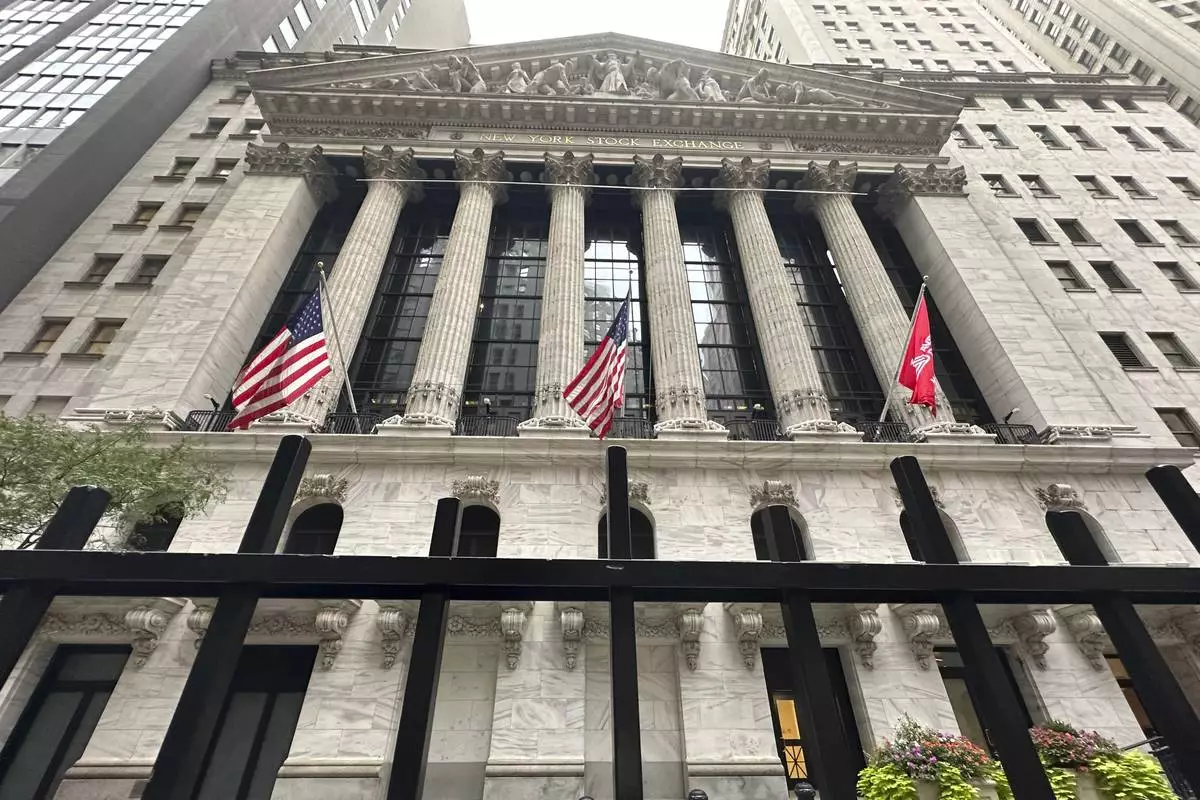
FILE - The New York Stock Exchange is shown on Sept. 18, 2024, in New York. (AP Photo/Peter Morgan)
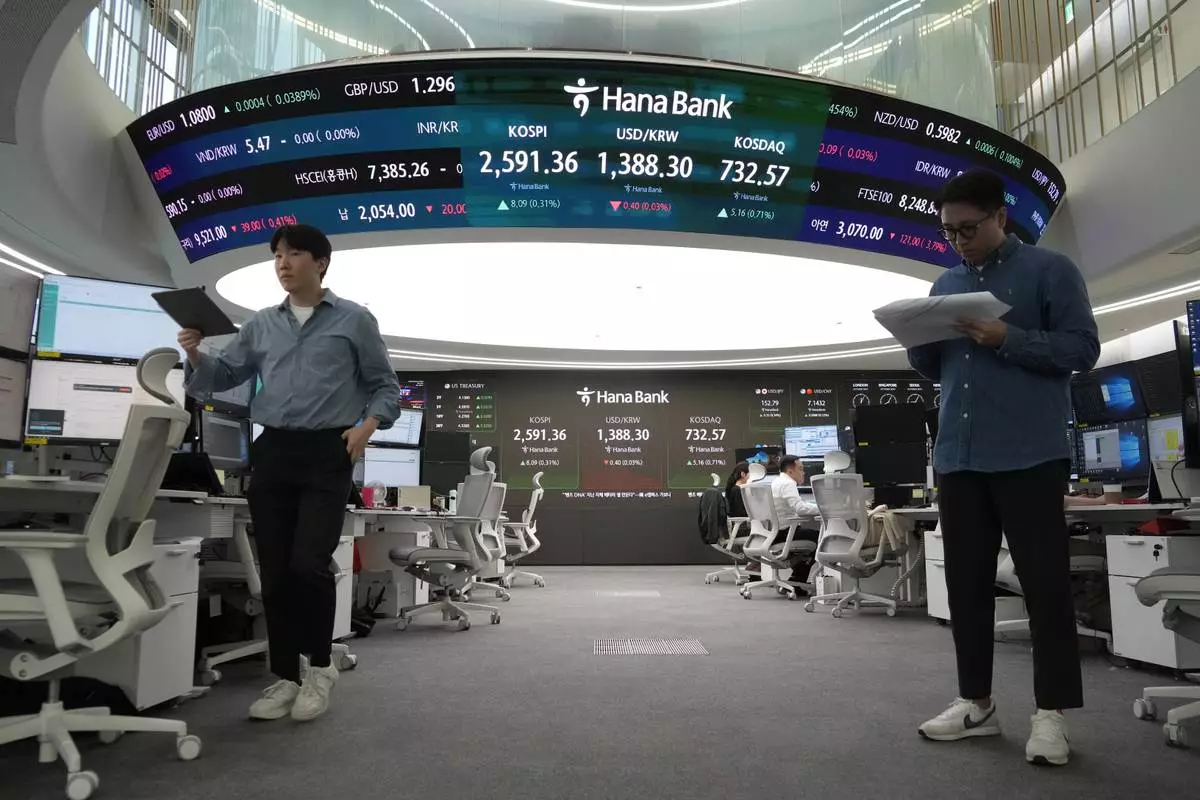
Currency traders work at the foreign exchange dealing room of the KEB Hana Bank headquarters in Seoul, South Korea, Monday, Oct. 28, 2024. (AP Photo/Ahn Young-joon)
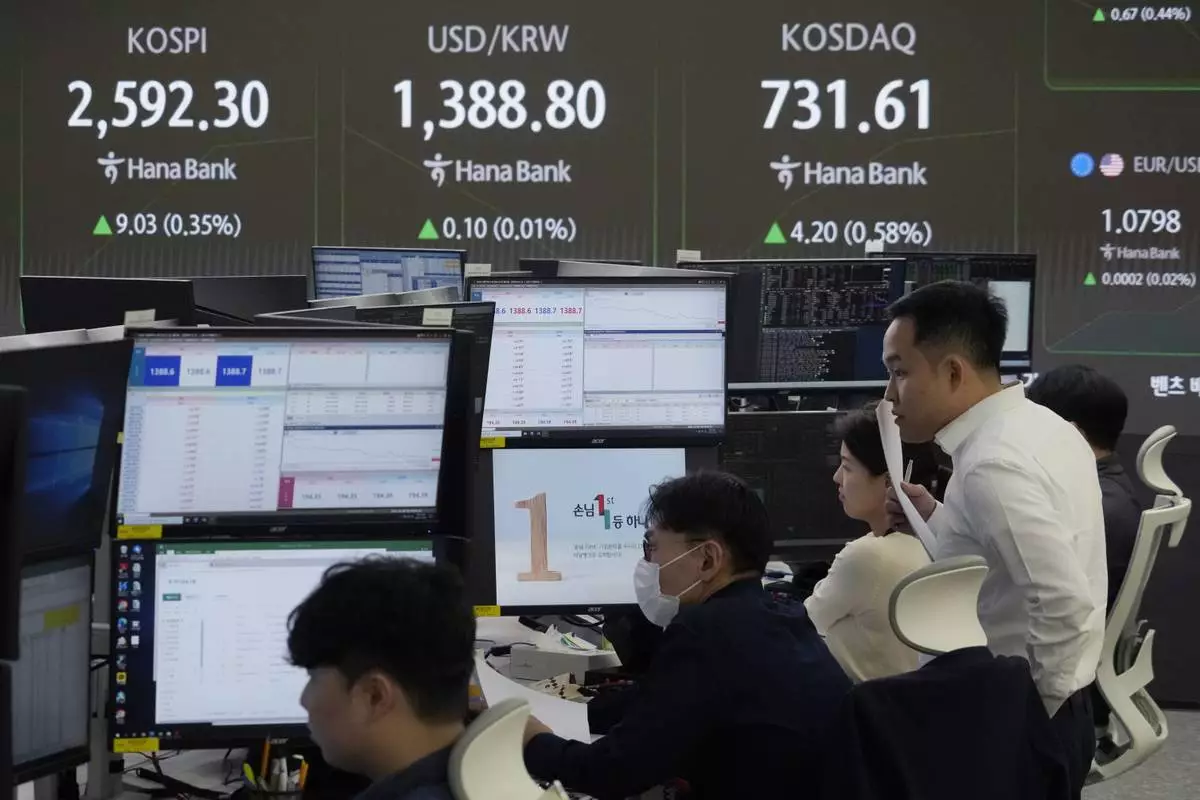
Currency traders watch monitors at the foreign exchange dealing room of the KEB Hana Bank headquarters in Seoul, South Korea, Monday, Oct. 28, 2024. (AP Photo/Ahn Young-joon)
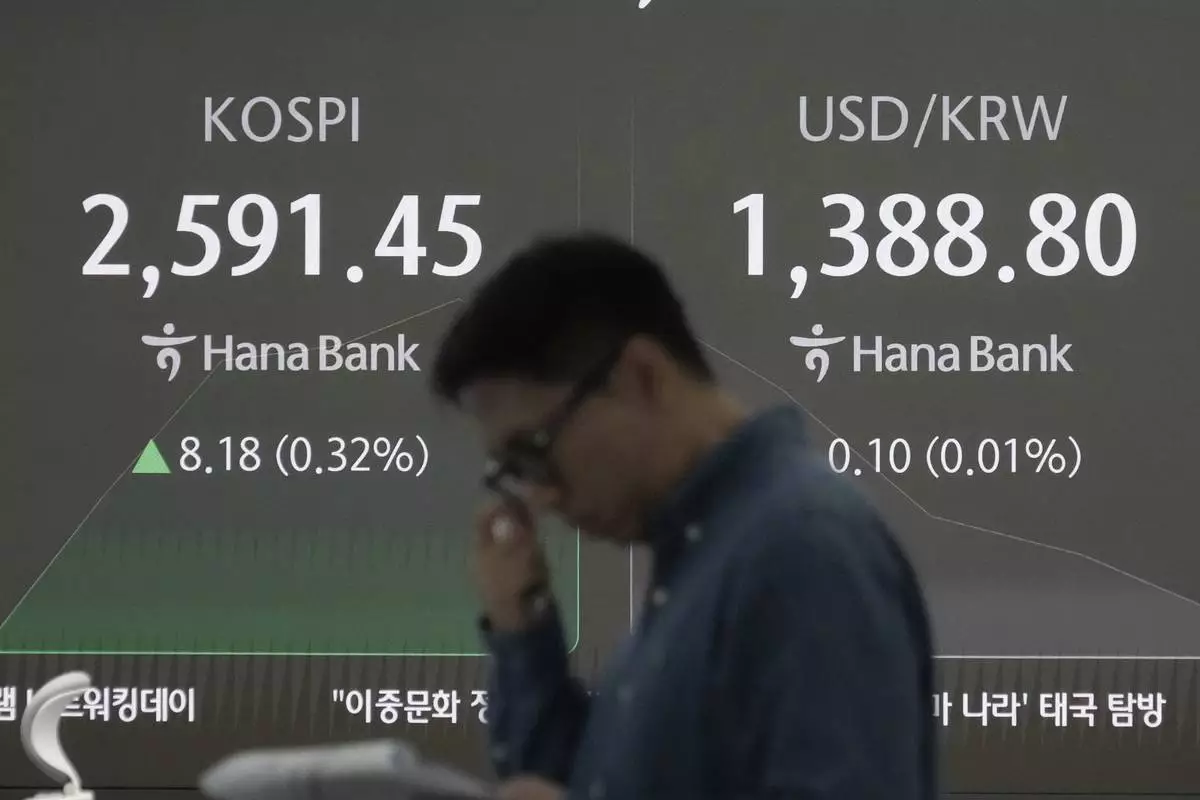
A currency trader works near a screen showing the Korea Composite Stock Price Index (KOSPI), left, and the foreign exchange rate between U.S. dollar and South Korean won at the foreign exchange dealing room of the KEB Hana Bank headquarters in Seoul, South Korea, Monday, Oct. 28, 2024. (AP Photo/Ahn Young-joon)







